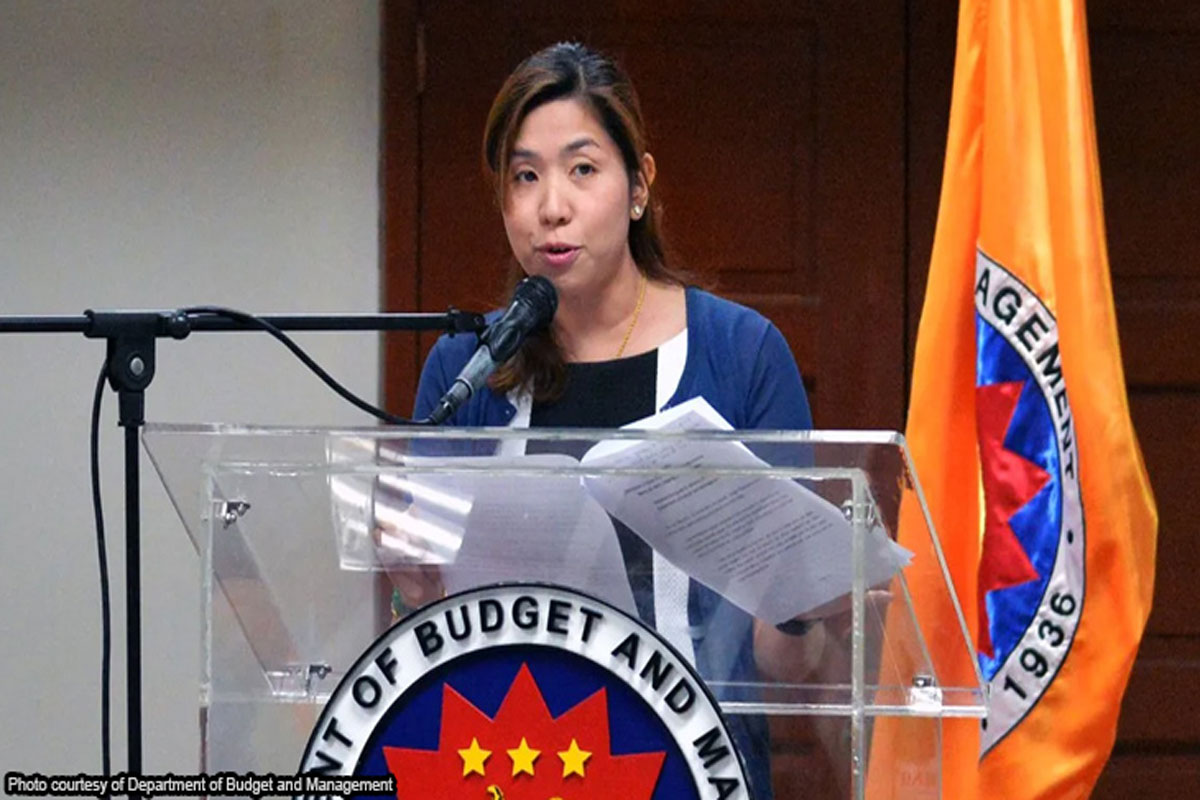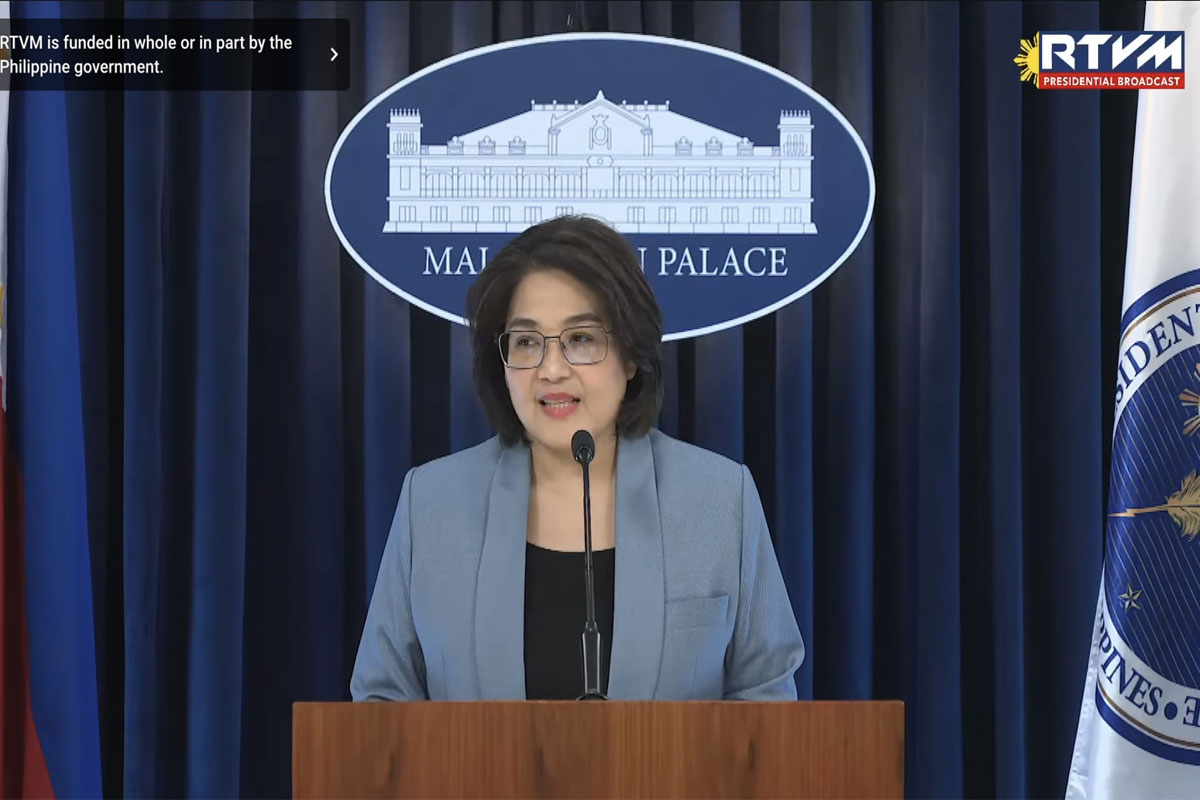
Senate panel starts discussions on 2024 NEP
THE Senate Committee on Finance, chaired by Sen. Edgardo Sonny Angara, started discussions on the proposed P5.768 trillion national budget Tuesday, August 15, 2023.
The 2024 National Expenditure Program (NEP) is 9.5 percent higher than the P5.268 trillion budget allocated for 2023 and is equivalent to 21.7 percent of the country’s Gross Domestic Product (GDP).
The Development Budget Coordination Committee briefed the finance panel on the 2024 budget dimensions.
Budget and Management Sec. Amenah Pangandaman, who was present in the hearing, enumerated the highlights of the proposed FY 2024 National Expenditure Program during the briefing of the DBCC.
For FY 2024, Pangandaman said the proposed national budget is P5.768 trillion which is 9.5 percent higher than the P5.268 trillion budget for 2023.
In the same hearing, Finance Sec. Benjamin Diokno briefed senators on the status of the National Government’s revenue collection during the hearing.
Diokno assured senators that the Department of Finance will continue its prudent debt management as it prioritizes domestic financing to prevent external vulnerabilities.
National Economic and Development Authority (NEDA) Sec. Arsenio Balisacan, who also attended the hearing briefed the senators on the country’s economic performance, growth outlook and priorities for next year.
Sen. Ronald “Bato” Dela Rosa sought assurance from economic and finance managers that the Philippines can manage its outstanding debt.
Dela Rosa echoed the concerns of Filipinos on the country’s financial obligations, citing news reports on the estimated debt per capita.
“Can we assure Filipinos not to panic about our national debt?” Dela Rosa asked in Filipino.
In response, Finance Sec. Benjamin Diokno said the country’s debt level remains “reasonable” and “manageable.”
Senate President Pro Tempore Loren Legarda asked economic managers whether the Philippines could achieve its targeted Gross Domestic Product (GDP) growth rate for this year.
“The actual growth for the first quarter of this year was 6.4 percent, in the second quarter 4.3 percent or an average growth for the first semester of 5.3 percent. Is the Development Budget Coordination Committee (DBCC) still confident that the projection for 2023 could be achieved given the performance of the first semester of an average of 5.3 percent?” Legarda asked.
GDP is projected to grow annually between 6.5 percent to 8 percent from 2023 until 2028.
NEDA Chief Balisacan said he is optimistic the GDP could be met.
He told Legarda that the underspending of resources in the first semester could be used in the second semester.
In addition, he said, they are expecting inflation to decelerate this year.
Senate Minority Leader Aquilino “Koko” Pimentel III sought clarification from the country’s economic managers regarding statements that Filipinos need not worry about the country’s national debt.
Pimentel noted that the ballooning principal debt and interest payments, as well as the swelling total amount of debt to be paid by the country, are causes for concern.
In response, National Treasurer Rosalia De Leon informed senators that, apart from maintaining a good debt-to-gross domestic product (GDP) ratio compared to other countries in the region, the Philippines’ debt profile remains resilient due to lower refinancing risks and the positive credit rating awarded by various credit rating agencies.
Senate Deputy Minority Leader Risa Hontiveros urged the government economic managers to come up with a realistic budget proposal that will address the needs of the country.
Hontiveros expressed concern over the real situation of the country which, according to her, is still in crisis.
“We should not over promise if we are still under deliver because most people still feel, if we listen to the different sectors, that they are in crisis and they are worried. They haven’t really benefited from the complete free health care, they still feel the problems with education, they still haven’t experienced that the food and fares are cheap, and in terms of social protection, they still don’t feel that they are protected,” Hontiveros said in Filipino.
“I feel that our country is still in crisis and we need a budget that will realistically respond to it…I would appreciate a more candor and realistic budget presentation. Otherwise, we will not be able to sleep well…to come up with a realistic and effective budget,” she added.
Sen. Pia S. Cayetano urged NEDA to take the lead in sustaining the country’s health sector.
Cayetano enumerated the problems in sustaining the health sector, particularly the shortage of health care workers such as nurses, pharmacists, physical therapists and occupational therapists, among others.
The problem, according to Cayetano, is that both the Department of Health and the Commission on Higher Education have their hands full to focus on the shortage of health human resources.
“Everything that makes a health system sustainable, we have a shortage. Who is taking the lead? I would like to recommend that it would be NEDA-led,” Cayetano stressed.
Sen. Cynthia Villar prodded government agencies to prioritize local agricultural produce in implementing the National Rice Program (NRP).
Villar lamented how the Department of Agriculture and concerned agencies supposedly favor imported agricultural inputs for the NRP.
“Our National Rice Program has become overdependent on imports when we should be depending on local production,” Villar, chairperson of the Committee on Agriculture, Food and Agrarian Reform, said in mixed Filipino and English.
Villar said the government, instead, could fund and equip local industries to produce inbred seeds and organic fertilizers within the country.


















